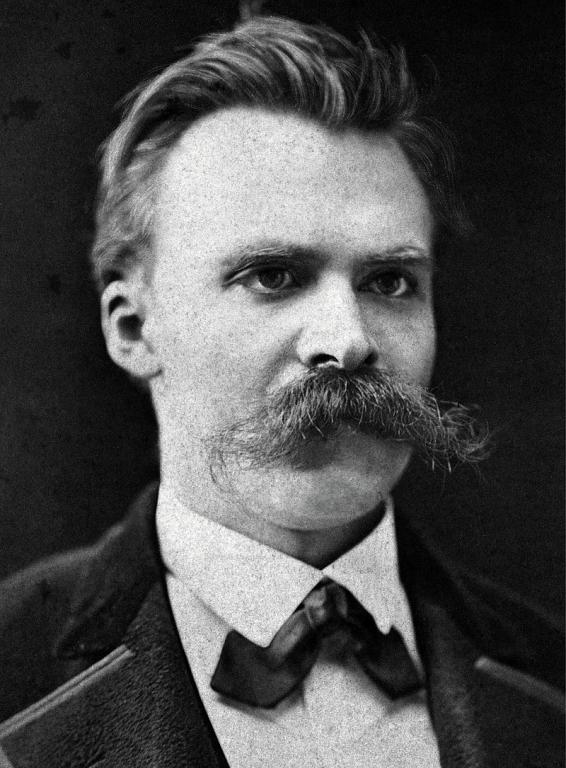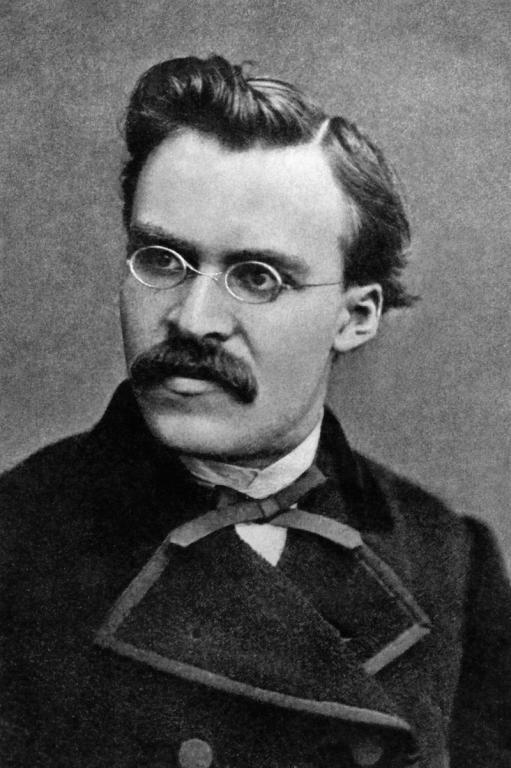One philosopher who I teach regularly in my philosophy classes is the great German philosopher, Friedrich Nietzsche. Nietzsche is well-known for his atheism. Perhaps surprisingly however, some of the people of whom Nietzsche most critical were atheists. The reason why? He believed that most of his fellow atheists in 1800s Germany were hypocrites. The definition of a hypocrite is someone who says one thing and then in reality does another. Well, Nietzsche believed that the atheists around him were saying one thing – namely, that God doesn’t exist – while in reality acting as though God did exist.

Think about Nietzsche’s criticism for a minute. Christian morality is the moral system taught in the New Testament. There, in famous passages like Matthew 5 and 6 (the Sermon on the Mount), and Galatians 5 (the Fruits of the Spirit), we are taught that certain values are better than others. What are the better values? Well, the fruits of the spirit include love, joy, peace, patience, kindness, and gentleness. In short, Christian moral values teach us that we should be kind to our neighbors, that we should love our neighbors, that we should put the interests of our neighbors ahead of our own.
Some of our most cherished modern political values have come out of the Christian tradition. Think about the value of equality as an example of this. This is a value which says that all persons are (and ought to be) equal to each other. No one ought to receive special privileges under the law, and all persons ought to be held to the same standards of behavior under the law and in accordance with cultural expectations. Virtually all of us moderns – theists and atheists alike – subscribe to this value, even though the fact of the matter on the ground is that people are anything but equal. Some people are taller than others, some are stronger than others, some are smarter than others, and so forth. The value of equality, when put into practice, is a way of raising up (or elevating) the weak people in society and diminishing the power of the strong. This comes right out of the Christian teaching that all persons are equal before God – equal as sinners, equal in their need for a savior, and so forth. It also comes right out of the Christian teaching that we should cherish and love the weak people among us, even if it costs us something.
Now here’s where Nietzsche strikes and criticizes atheists. He says that atheists, who pride themselves on their belief that God does not exist, in fact are hypocrites because they are still drinking the Christian Kool-Aid. Take the value of equality as an example of what Nietzsche is saying. Virtually all atheists in America are going to tell you that they believe in the value of equality. But at bottom, according to Nietzsche, the value of equality is fundamentally a Christian value. It is Christian because it comes out of the Christian teaching that the weak should be privileged and that all persons are equal before God. There was no value like equality in the ancient Roman world, or the ancient Greek world, or any ancient culture before the rise of the Judeo-Christian worldview.
Atheists these days, for Nietzsche, are still largely adhering to legacy Christian moral values. They do not subscribe, say, to the values of the pre-Christian world. When atheists run around saying God does not exist, but then continue to subscribe to Christian moral values, they are, according to Nietzsche, deeply hypocritical. He means that they are continuing to act like functional Christians – or at least like legacy Christians – because they are continuing to subscribe to the very values of the belief system that they claim to reject.
For Nietzsche, if atheism is ever going to grow up and become its own worldview, and not just continue decade after decade to be parasitic upon the Christian worldview (i.e. still subscribing to Christian values), then it needs to throw off Christian values entirely. That is, atheists need to get rid of all of the moral values and teachings that have been imparted by Christianity. Atheists need to go back to an earlier, pre-Christian pagan world, when Christian teachings about the importance of serving the poor and not thinking of yourself all the time were non-existent.
Are atheists being hypocritical when they say that they don’t believe in God but then continue to subscribe to legacy Christian moral values? Are they still acting like functional Christians, or at the very least like legacy Christians when they do this? Is Nietzsche right about the hypocrisy in modern atheism? These are interesting questions that he raises.












